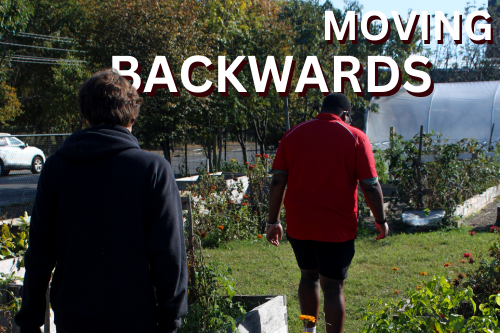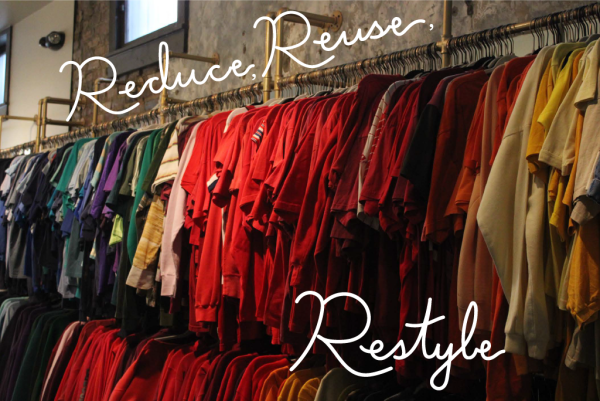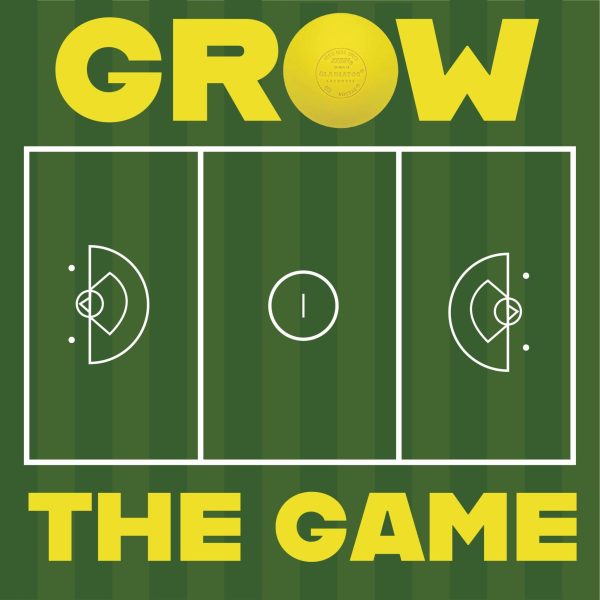FOMO Fascination
The Fear of Missing Out is more common than ever, thanks to social media. We spoke with a licensed child psychologist about three simple steps to curb the growing issue.
Photos by Ari Eastman
Design by Ari Eastman.
The Fear of Missing Out (FOMO), is a socially constructed fear that can be defined differently depending on an individual’s personal social outlook. Dr. Scott Salathe, licensed children’s psychologist and active member of the Kentucky Psychological Association, defines FOMO as not really a fear, but more like a weird anxiety hybrid. FOMO is a common fear that evolves during adolescence growth through social comparison. This developmental period of emotional and physical growth forces children and teens to subconsciously become susceptible to comparison and immense societal pressures. Dr. Salathe notes that this exclusion-based fear peaks during early adolescence in middle school, but begins to plateau during high school as individuals develop a more stable sense of identity.
Comparison most often occurs mentally, as individuals think they are ‘less’ than others, most often their peers. Accordingly to the International Journal of Environmental Research and Public Health, everyone is susceptible to this fear, but young women and gender non-binary community members are the most impressionable. Those who already struggle with anxiety are even more likely to encounter feelings of FOMO. The study also made it clear that FOMO often fuels insecurities, and has been found as the root of self esteem issues in many cases. It creates the overarching feeling that everyone has access to everything that you do not.
FOMO exists in situations where individuals may feel left out of a gathering, or that they are missing out on a product or lifestyle everyone else has. Social media furthers this concept through its constant updates on people’s lives. We feel left out in many different circumstances, leading to a downward spiral of negative self talk. It stimulates the brain in a way in which negative self appraisals are enhanced. This feeling affects the entire brain, although its influence can make it feel as though the entire body is responsive. This in turn causes grogginess and depressive-like symptoms throughout the body. Maybe sometimes not being invited somewhere with your friends can leave a pit in your stomach, or leave you with a bit of a headache, but it all stems from the chemical balance within the brain.
The feelings of FOMO are far from new, but its effects are felt more than ever today. While it was hard enough for previous generations to turn off the TV, it has become almost impossible for today’s teenagers to separate from their smartphones; and as technology and social media continue to develop, the consequences of FOMO intensify
Scrolling aimlessly for hours through platforms like Instagram and TikTok only heightens the mental distress and social comparison teens endure when inspecting their peers’ lives. Social media’s popularity thrives on keeping people enthralled with others’ lifestyles. Salathe believes that social media is merely a highlight reel of our lives, and we should view it as such. He notes that we have the ability to curate our social media feed by picking only the best photos and experiences—publicizing those over the more common emotional struggles that teenagers go through.
That being said, Salathe also provides strategies to overcome or manage this fear. First he notes that because of the high correlation between smartphone use and FOMO, it is important to be aware of your screen time. It is easy to spend a surplus of time on our phones, and this makes it more likely to become addicted. He then describes his three step plan to combat the detrimental thought process that stems from FOMO. These steps outline the ways to help heal your mindset while experiencing FOMO.
First, be aware of yourself and the cues your body is giving you. It is highly important to be conscious of personal habits and emotional and physical wellness, including exercising and eating to fuel your body. When feeling down or like you’re missing out, Salathe suggests going on a walk to help stimulate the brain. Practice gratitude and self compassion.
Second, find a way to express yourself, appreciate what makes you different, and most importantly, find joy within your lifestyle as it is. Using daily affirmations and pursuing new and current hobbies are both great ways to appreciate what you have.
Third, figure out how to use what you already have, and use it to your advantage. Instead of dwelling on things you wish you could have, focus on the things already present in your life. Work to be additionally grateful for the people in your life and express that gratitude.
All things considered, almost every individual feels as though they are less than their peers, but the reality is that almost everyone feels these same emotions and has the same perspective about themselves. It is vital to consider methods such as Salathe’s three step plan or other self-developed strategies and habits to be self aware of FOMO related internal thought processes. Self regulating screen time when you find yourself scrolling for too long, or planning time for gratitude practices will exponentially increase attentiveness to the real world, rather than being absorbed within the actions of others. Self awareness is the key to combating this particular phobia. It’s crucial to value your own personal wellbeing and have the ability to block negative thought processes that can contribute to feelings of anxiety or low self esteem. Battling FOMO is easier said than done, but by practicing mindful techniques, the mirage in front of social media influencers and private story posts becomes more distinguishable, making it easier to restore self compassion.
Donations are collected through The Publishers, duPont Manual High School's booster club for J&C. On The Record relies completely on sponsorships, advertisements, and donations to produce and distribute each issue. Please consider donating to our cause, and helping the student journalists of OTR amplify youth voices for years to come.
Keller is a junior Promotional Coordinator on the marketing team. Outside of OTR she plays volleyball, and is involved with various clubs and organizations....

Cameron Breier is a senior and the Marketing Director for On The Record. This is her third and final year on staff and she is looking forward to distributing...








